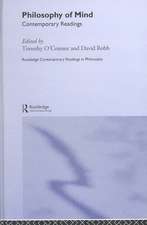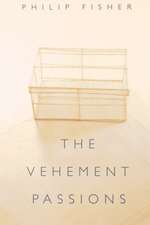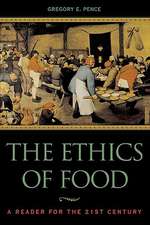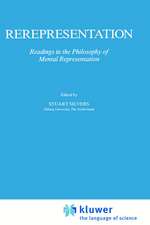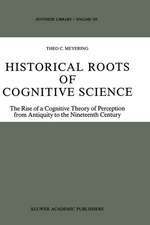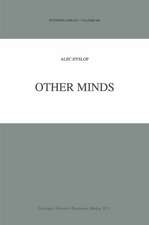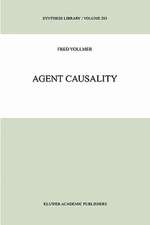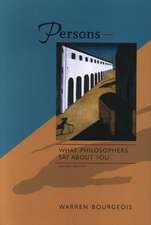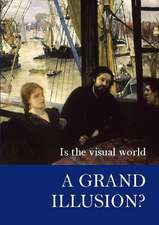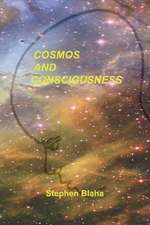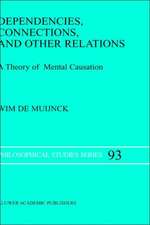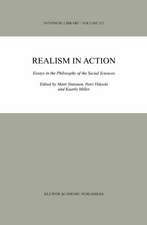Human Thought: Philosophical Studies Series, cartea 70
Autor J.R. Mendolaen Limba Engleză Hardback – 28 feb 1997
| Toate formatele și edițiile | Preț | Express |
|---|---|---|
| Paperback (1) | 953.65 lei 6-8 săpt. | |
| SPRINGER NETHERLANDS – 28 feb 1997 | 953.65 lei 6-8 săpt. | |
| Hardback (1) | 953.65 lei 6-8 săpt. | |
| SPRINGER NETHERLANDS – 28 feb 1997 | 953.65 lei 6-8 săpt. |
Din seria Philosophical Studies Series
-
 Preț: 407.78 lei
Preț: 407.78 lei - 15%
 Preț: 644.95 lei
Preț: 644.95 lei - 18%
 Preț: 1120.18 lei
Preț: 1120.18 lei - 18%
 Preț: 1005.43 lei
Preț: 1005.43 lei - 15%
 Preț: 640.06 lei
Preț: 640.06 lei -
 Preț: 381.21 lei
Preț: 381.21 lei -
 Preț: 391.61 lei
Preț: 391.61 lei - 15%
 Preț: 640.88 lei
Preț: 640.88 lei - 15%
 Preț: 639.25 lei
Preț: 639.25 lei - 18%
 Preț: 1221.51 lei
Preț: 1221.51 lei - 18%
 Preț: 947.18 lei
Preț: 947.18 lei - 18%
 Preț: 955.56 lei
Preț: 955.56 lei - 18%
 Preț: 950.96 lei
Preț: 950.96 lei - 15%
 Preț: 645.47 lei
Preț: 645.47 lei - 15%
 Preț: 635.79 lei
Preț: 635.79 lei - 15%
 Preț: 644.82 lei
Preț: 644.82 lei - 18%
 Preț: 950.66 lei
Preț: 950.66 lei -
 Preț: 386.00 lei
Preț: 386.00 lei - 15%
 Preț: 644.82 lei
Preț: 644.82 lei - 15%
 Preț: 642.18 lei
Preț: 642.18 lei - 15%
 Preț: 643.48 lei
Preț: 643.48 lei - 18%
 Preț: 944.99 lei
Preț: 944.99 lei - 15%
 Preț: 638.76 lei
Preț: 638.76 lei - 20%
 Preț: 553.25 lei
Preț: 553.25 lei - 20%
 Preț: 560.30 lei
Preț: 560.30 lei - 18%
 Preț: 951.29 lei
Preț: 951.29 lei - 18%
 Preț: 893.40 lei
Preț: 893.40 lei - 20%
 Preț: 566.75 lei
Preț: 566.75 lei - 18%
 Preț: 951.77 lei
Preț: 951.77 lei
Preț: 953.65 lei
Preț vechi: 1162.99 lei
-18% Nou
Puncte Express: 1430
Preț estimativ în valută:
182.48€ • 190.91$ • 151.59£
182.48€ • 190.91$ • 151.59£
Carte tipărită la comandă
Livrare economică 02-16 aprilie
Preluare comenzi: 021 569.72.76
Specificații
ISBN-13: 9780792344018
ISBN-10: 0792344014
Pagini: 481
Ilustrații: IX, 481 p.
Dimensiuni: 155 x 235 x 25 mm
Greutate: 0.68 kg
Ediția:1997
Editura: SPRINGER NETHERLANDS
Colecția Springer
Seria Philosophical Studies Series
Locul publicării:Dordrecht, Netherlands
ISBN-10: 0792344014
Pagini: 481
Ilustrații: IX, 481 p.
Dimensiuni: 155 x 235 x 25 mm
Greutate: 0.68 kg
Ediția:1997
Editura: SPRINGER NETHERLANDS
Colecția Springer
Seria Philosophical Studies Series
Locul publicării:Dordrecht, Netherlands
Public țintă
ResearchCuprins
One: Introduction.- One: Content.- Two: From Content to Representational Content.- Three: From Representational Content to Basic Content.- Four: Basic Content and Experience.- Five: Microevents.- Six: Phenomenal Elements.- Seven: Causal Elements.- Two: Conceiving Agents.- Eight: Thoughts.- Nine: Thought Skepticism.- Ten: Words and Meaning.- Eleven: Resources.- Twelve: Experience and Quasi-Experience.- Thirteen: Thought Beyond Experience.- Three: Experience and Plausibility.- Fourteen: Phenomenal Objects.- Fifteen: Mere Phenomenal Experience.- Sixteen: Causal Experience.- Seventeen: Relativity and Causal Experience.- Eighteen: Classical Experience and Quantum Mechanics.- Nineteen: Conclusion.

